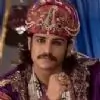Folks,
It is an unfortunate truth that it is mostly when a man is at the end of his tether that he turns to the Almighty. And to deep, heartfelt prayer. But there are two kinds of prayer, just as there are two kinds of grief.
One is the grief for loss already sustained, loss that is irreparable. The prayer that such grief calls forth is for the power to heal oneself , to surmount the loss.
Nothing can express this kind of prayer better than the words of the ancient Greek poet and dramatist, Aeschylus, which were quoted by Robert Kennedy, on April 4, 1968, in his eulogy at the funeral of the assassinated Dr.Martin Luther King:
Even in our sleep, pain which cannot forget falls drop by drop upon the heart, until, in our own despair, against our will, comes wisdom through the awful grace of God.
When Jalal, learning of the murder of his Khan Baba, fell to his knees, threw his head back, and roared in agony, and again when he crumpled into his Badiammi's arms and wept for the loss of his unborn child - it was this kind of divine grace that he needed.
The second is the grief for a loss that looms large, but is not yet a fact. The prayer that such grief calls forth is the prayer of desperate hope, hope that the Almighty can avert the tragedy that threatens.
Yesternight, when Jalal fled from his Jodha Begum's bedside, raging with helpless despair as the Hakim Sahiba seemed to be abandoning all hope for her, and made his way to the dargah, it was the second kind of prayer that he offered up, to try and assuage the second kind of grief.
I am, as I often say, a semi-cynic. I am not easily moved by manufactured tragedy or facile grief, by the practiced tears of even a superb actor. I tend to stand aside and watch the performance like a theatre critic, on the lookout for every hint of overplaying, for false notes that jar in even an otherwise competent rendering. I very rarely forget that it is an actor displaying his or her craft, not a real drama of grief and despair. It was so even with the famous Amitabh death scene in Deewaar, or that of the iconic Dilip Kumar in Devdas.
But all that was gone with the wind last night. From the moment when Jalal emerged from the room where Jodha lay in a marbled stillness - her lashes dark on her cheeks, a line of blood from mouth to chin, her face suffused with the darkish blue of the poison that was leaching her life away - and began the long walk to the dargah, I sat mesmerized. From then, till the last moment, seven and a half minutes later, when he ties the mannat ka dhaga of hope against hope for Jodha's survival, the spell that had been cast upon me was unbroken.
Here was not a brilliant Rajat bringing Jalaluddin Mohammed alive on screen. It was Jalaluddin Mohammed himself.
A Shahenshah caught in a vortex of unbearable grief that he had never felt before. A grief compounded by guilt, guilt at his bullheaded obstinacy that had precipitated this tragedy. He does not fudge his responsibility for what has happened; he never does. His self flagellation is there to see every time he repeats - brushing aside his Ammijaan's thoughtful attempt to soothe him by pointing out that he had tried, but that Benazir had been too shatir for him -and his voice rising with every repetition, galti hamari thi.
The grief and the guilt are both there in Jalal's body language as he walks slowly along the path to the tomb, shoulders hunched. The eyes film over, ever so slightly, with unshed tears, but the face looks still in mute despair. Then it slowly begins to crumple from inner pain.
Scenes of himself and Jodha play in his mind's eye. When she says that she no longer has ghrina for him because he now has faith in her, as he looks on in near disbelief. The moment when she reaches her hand out to his to comfort him, and his face lights up from inside in wonderment, like that of a little boy unexpectedly getting the very gift he has always yearned for .
It is striking that Jalal's memory blanks out the unpleasantness that followed , and the rage and humiliation that poisoned his zehen towards the woman he believed had led him on, and then deliberately rejected him. Poison that had destroyed his new found faith in her, and by doing so, had led to the present tragedy.
This is what makes me feel that there will no longer be any need for the mystery of Jodha's paigham to be solved and brought to light. The tidal wave of emotions now unleashed within Jalal will sweep all before it, every past ranjish, gila aur shikwa. And that is the way ot should be, for when Jalal and Jodha finally accept each other fully, it should not be on the basis of proofs that dispel past misunderstandings. It should be on the basis of faith that does not need proof.
It is said that it is the back of a person that can show his state of mind the best. As Jalal makes his way to the inner sanctum, where the Pir lies in eternal sleep under a blanket of flowers, his back , shoulders drooping under the tremendous stress, is eloquent of both his fears and his hopes .
He kneels by the tomb and begins to pray, his lips moving soundlessly, his face working and the tears now flowing unhindered. I think it is futile to see this as a fulfillment of Mirza Hakim's dictum of love making even a Shahenshah so weak that it can bring him to his knees. Jalal prays to Allah on his knees, and how else would he pray?
It is the same about the conclusion that he is now no longer a Shahenshah but an ordinary man praying for the woman he loves. There can be no dividing line between the two parts of his persona, and he himself says Hindustan ka shahenshah do jahan ke shahenshah ke saamne sar jhukakar bheek mangta hai. And that does not matter in any case, for his submission is total and free of the faintest taint of any ego.
For himself, more than even for Jodha: Nor would it be correct to say that he is praying merely for Jodha to be saved. He is really praying, as much and perhaps more so, for himself, for his own emotional survival.
For he now knows, beyond the shadow of a doubt, that if his Jodha Begum were to die, something vital in him would die with her, that he would never be whole again. That he would be but a shadow of himself, crippled inside, and crushed under a lifelong burden of corrosive regret.
Whence the repeated, despairing cry from the depths of his being: Uski jaan baksh deejiye, mere maalik. Uske bina main rah nahin sakta, main jee nahin sakta. There is no reserve any more, no hiding what he has felt for long but never revealed, or even acknowledged to himself. Apne jazbat saari duniya se chupayi, par aapse kya chupa hai, mere maalik?
So it goes, on and on, as the floodgates open up, and the torrent of grief, of hope in the face of fear, surges forth and takes him over. His head moving from side to side, cheeks wet with tears, his voice cracking under the emotional strain and at times becoming almost suspended, Jalaluddin Mohammed beseeches Allah for the woman he needs now as he has never needed anything else, to be spared to him.
Thus must his grandfather Babur have prayed for the life of Humayun to be spared. With the same desperate pleading to the All Powerful to, as Jalal says, demonstrate that divine power and save his son's life. Except that Babur is said to have offered his own life in exchange to the Almighty, and it was apparently accepted. Jalal seeks punishment for his gunaah of not believing her, he does not offer his life in exchange for Jodha's.
Which is as it should be, for not only is Jalal praying for his own emotional survival, which he now knows is impossible without her, but he now also knows that Jodha too would not survive without him.
For herself, as well as for Jalal: In fact, what has been said of Jalal above is equally true of Jodha. She does not merely seek to sacrifice her life for her pati. She also seeks to protect herself from the arid marubhoomi (desert) that she now knows that her life would be without him, even if he were to continue to ignore her and despise her. Yes, she would be no more, but that would, for her, be preferable to surviving without him.
The real motive of the one is the mirror image of the motive of the other.
So there I was, at the end of the seven and a half minutes of this gut wrenching display of hope seeking to prevail over unbridled grief and fear, feeling as if I had been put thru an emotional wringer. I am not going to rewatch it any time soon. Coming from me, there could be no greater tribute to Rajat.
The rest last night: I am not even going to touch on Jalal rediscovering his astuteness and unearthing the zeher ki tod.
Ruqaiya: Or on the spontaneous joy and relief with which he hugs Ruqaiya when she turns up unharmed. So great is his relief that he even, unprecedentedly for him, hugs Atgah Khan. This is as it should be, and if Jalal's love for Jodha and his fears for her life had led him to ignore the very real threat to Ruqaiya, I would have thought much less of him as a person. There is room and enough in his oft-denied dil for both his love for Jodha and his affection for his Gatti.
I only hope that at least now, Ruqaiya's current genuine concern for Jodha, and her desperate desire that she should be saved do not, once the crisis has passed, degenerate once more into counterproductive ego hassles and friction with what she sees as competition for her audha.
I would not fault her for saying that she wants Jodha's life to be saved because Jodha had endangered her life to save Jalal's and not, as someone said, out of love for Jodha. It is too much to expect that Ruqaiya should love the woman who, as she will soon discover, has taken over their shauhar's dil. I for one would be more than satisfied if she reverts to being Jalal's Gatti and learns to live with his affection without fighting with Jodha for his love.
Though I had, the night before, felt a good bit of Schadenfreude (mischievous delight) at seeing Ruqaiya slung across Benazir's saddle, like a sack of potatoes😉, and her being finally dumped unceremoniously to the ground, I was also impressed by her rescuing herself by landing that smart blow to her captor's head with that fortuitously located stone.
She knows how to keep her head even in a crisis, does Ruqaiya, and that rushing of the blood to her dangling head during that wild ride did not seem to have affected her alertness!
Yesternight, the way in which she finally settled Benazir's hash once and for all was as magisterial in its swift decisiveness as in its shrewd practicality. It would have been dangerous to try and drag a zehreeli dosiza, always ready to bite her captors, all the way back to Agra for imposing the same death sentence.
Jodha: no life without Jalal: I had noted earlier that when Jodha, driven to the last ditch by Jalal's stubborn refusal to believe her re: Benazir, accepts almost certain death to save the life of her sowbhagya chhinna, she is doing it as much for herself as for him .
As her frantic fears for Jalal's life ever since she discovered the truth about the ghrinit jantu showed, she can no longer visualize her life without him. It needed this mortal fear to make her realise this truth, just as it needed the terrible shock of her collapsing in his arms to lance at one stroke the nasoor that was suppurating in Jalal's zehen ever since the night of The Shove.
The CVs are not such fools as we often like to label them; they know their onions. And my dear Lashy, take a bow, for you were dead right on this, and I, with my preference for a more rational, low key, less hyper solution, was completely wrong
Similarly, I initially felt, after watching it in the precap, that Jodha's repeating Jalal's earlier harsh remarks to her (after the hoojra restitution), while affirming that she would, having failed to convince him, now herself prove what she claimed, was unduly dramatic and OTT.
But after watching the whole episode on Monday night, I realised that it was necessary. It was like the swelling arias in grand opera that lead up to the clash of cymbals and the roll of drums for the grand climax. It was needed to drive home to Jalal the folly of what he had then said, besides the folly of what he had not done and what he had thus driven Jodha to do. For till she collapses into his arms, such is the loss of faith created by The Shove, that he still takes it to be her nautanki due to her jealousy of Benazir.
Kartvaya, not love?:It was the same with Jodha's last words to him before she loses consciousness. Some have objected that she spoke of only of her having fulfilled her kartavya, and not that she had done it out of love for him. This is hardly a valid objection.
Jodha has still not put a name to the terrible dread, the fear of unbearable loss, that has haunted her ever since the night of Mahashivaratri when she saw at first hand what Benazir was planning to do to Jalal. Then again, Jalal's harsh words about never seeing her face again, even if she were dying, and never repeating his mistake in entering her hoojra, were like a door being closed in her face (even if she did not believe Jalal really meant all that. And rightly so, for Jalal's outburst then sounded remarkably like an angry child screaming at its mother I hate you! I wish you were dead!).
Given all this, the fear of rejection would have been as strong in Jodha as it was in Jalal. So she would hardly have chosen that moment to make a declaration of a love she herself does not as yet realise she feels, and that too to a man who claims to despise her. What she thus does, in her last conscious moments, is to tell her pati that she is glad to have given up her life and saved his. That the scenes of herself and Jalal that flit thru her fading consciousness are all free of any harsh overtones tells its own story.
Paridhi more than met the demands of this scene, which could so easily have degenerated into melodrama. She was superb as a Jodha who struggles to summon the last resources of her fading consciousness to tell the man for whom she was ready and happy to give her life, that she has achieved what she had set out to do- to save him despite himself.
To watch Jodha, her throat constricted as she fights for the breath that is failing her, drag each word out by sheer force of will is so traumatic that it hurts the viewer almost physically.
The zehreeli dosiza: No one can say that Benazir did not make a dramatic exit. Looking her very best in the only shahi libaas that seemed to suit her and did not make her look downmarket, she raved and ranted energetically. Her pearly whites were in full display as she drew her lips back in a snarl and hissed, by turns, at Jalal. Ruqaiya and Mahaam.
In the process, she made a full scale PR pitch for Jodha Begum, in the course of which , she gave Jodha omnibus credit for saving Jalal from her every single time, forgetting that the first such rescue from her kiss of death was due, however inadvertently, to Ruqaiya barging in at the very last moment!
Also, in asserting that Jodha was a fool in sacrificing her life for a husband who cared nothing for her, Benazir was doing a Maricha, so to speak. Let me explain.
Now Benazir knows perfectly well, and has repeatedly said to herself, that Jalal has all along used her to try and make Jodha Begum jealous, and that he is really obsessed with Jodha. So this deliberately misleading assertion of hers reminded me of the rakshasa Maricha who, even as he was dying from Rama's arrow, cried out in Rama's voice Help, Lakshmana, help! Only this time, there was no Sita around to listen to it, Jodha having already fainted. So it was obviously meant to denigrate the Jalal she hates with all her heart.
Bollywood 101: After all this heavy duty emotion, methinks some light relief would be in order. The Monday night episode provided a good dollop of it, mostly unintended.
But before we come to that, a word about the muh dikhayi. Such a fraud, a muh dikhayi for a kaneez who has been trying to drape herself all over the Shahenshah for weeks now! 😉
And why do all of them, even Hamida. get up when the bride-to-be arrives? It is all right to do so for the Shahenshah, but for his would be begum?? Ludicrous.
From then on, it was an unintentionally comic episode, with every cliche of the Bollywood films of the 1970s firmly in place, and not just the hostage taking. Which was ludicrous too, with Ruqaiya moving helpfully to just within arm's length of the GJ.😉
Then again, at the end of the ride, why the devil does Benazir not bite Ruqaiya at once, instead of telling her tayaar ho jao, which of course delays matters till the posse arrives? Plus, we are asked to believe that she cannot see Ruqaiya scrabbling for that large stone right in FRONT of them!
The best cliche was of course the Hakim Sahiba intoning solemnly that the next 8 pahars would be crucial. In the films, it is usually 48 hours!😉
The funniest part was looking at Adham's face when Jodha collapsed into Jalal's arms. Now that chap is quick on the uptake, waving his co-conspirators away at once, and instantly shifting focus to the need to silence Benazir before she betrays him - exactly as he did with the assassin he smuggles into Jalal's tent near Amer. It is another matter that though he does not manage to get behind her for a neat thrust with a khanjar,and he can hardly join the posse after her, he is saved byRuqiaya in the end, as Benazir dies before revealing his dirty secret.
Lady Luck is with him this time as well. In fact, if he has not been outside her range of vision when she was doing a hatchet job on Ruqaiya and Mahaam, Benazir would have exposed him at once with vicious glee. Lady Luck, or perhaps it was Satan looking after his own?
What next?: I did not understand what was meant by the diya that Jalal lights in front of Kanha as he prays to him, going out suddenly. Maybe Jodha's heartbeat will stop in a near death situation, and Jalal is able to pull her back by the sheer force of his will.
I only hope that the first Jalal-Jodha scene after she regains consciousness begins with a clean slate,and builds on what each of them has now realized about what the other means to him and to her. Anything less would be tauheen of the incredibly sensitive scenes of the last two days, especially of last night.
Shyamala B.Cowsik
PS: For my dear nieces: I hope you are satisfied. It has turned out to be definitely more than the 2 pages you had demanded for Rajat's tour de force of last night!







































68